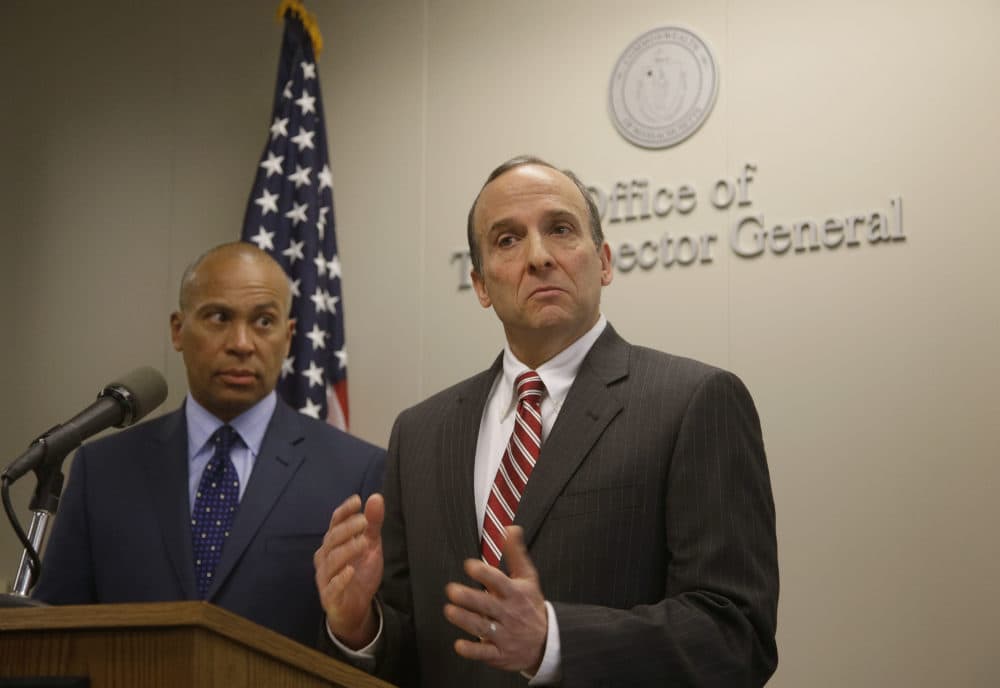Advertisement
New documents raise questions about extent of Boston drug lab scandal
Newly released court documents suggest the largest drug lab scandal in U.S. history may grow even larger.
The documents released last week indicated employee misconduct at the defunct Hinton Drug Lab went beyond the actions of disgraced chemist Annie Dookhan and was more widespread than state officials previously acknowledged.
Defense lawyers for four people convicted of drug charges based on testing at the Boston lab are now challenging their clients' convictions. One attorney also called for a federal investigation of former state officials he argued may have known about the extent of the misconduct and failed to disclose it.
Since the Hinton scandal erupted in 2012, state officials maintained Dookhan was responsible for falsifying tests at the drug lab. She was convicted of misconduct in 2013. A year later, former state Inspector General Glenn Cunha released the results of his investigation and concluded that Dookhan, who began working at Hinton in 2003, was the "sole bad actor" at the lab.

The new court documents, however, identified at least four other lab employees who allegedly mishandled testing or helped cover up the scandal.
The documents showed the workers were referred to the attorney general’s office for potential charges several years ago, but those referrals were not made public until Middlesex Superior Court Judge Patrick Haggan last week released a broad collection of impounded documents related to the reviews of the lab by the Office of the Inspector General.
Cunha, who now teaches at Boston College, said he declined to comment because of the pending litigation.
His 2014 report said the problems at the Hinton lab were because of "chronic managerial negligence, inadequate training and a lack of professional standards created the environment that allowed Dookhan to commit her crimes. These breakdowns also led to the failure to provide potentially exculpatory evidence to the parties in criminal cases. It also led to inaccurate courtroom testimony in some cases that did not involve Dookhan."
Advertisement
The new court documents contain email records of staffers in the inspector general’s office who raised questions about other Hinton employees.
Three months before Cunha issued his 2014 Hinton report, the documents show his office referred Julianne Nassif to the attorney general's office. During Dookhan's years at the lab, Nassif was the head of the state Department of Public Health's division of analytical chemistry. She was reportedly fired in 2014.
Despite that referral to the attorney general for potential charges, defense attorneys noted that the Office of the Inspector General maintained Dookhan was the only lab employee who engaged in misconduct.
"You kind of trust the idea that the government is telling the truth, but they're not — and they just didn't," said defense attorney James McKenna, who represents one of the four defendants challenging their drug convictions. "We're defense counsel, and our job is to get rid of our clients' convictions. We shouldn't be doing this."
Attorney J. Gregory Batten, who represents another of the four defendants, asked U.S. Attorney Rachael Rollins to bring possible charges against former state officials, including Cunha, former Attorney General Martha Coakley and Gov. Maura Healey, who was previously Coakley's successor.
"Your office and/or the Department of Justice, must investigate and pursue any and all legal remedies available to address and correct this wrong," Batten's letter said. "And your office and/or the Department of Justice must hold all those agencies and individuals (current and former) associated with the same accountable for their illicit actions."
Both Healey's and Rollins' offices declined to comment.
Defense lawyers said they will ask judges to throw out any conviction that involved testing at the Hinton Lab between 2003 and 2012 — regardless of the chemist who did the testing. Attorney McKenna estimated that could mean at least 100,000 criminal drug convictions.
The Massachusetts Supreme Judicial Court already has ordered tens of thousands of criminal convictions be vacated because of the Hinton scandal and another state drug lab scandal. In 2014, former Amherst chemist Sonja Farak was convicted of using some of the drugs she was supposed to test for evidence. Farak worked at the Hinton Lab before she worked in Amherst.
"This is the first important step in a longer process during which we hope to learn more about the full extent of the ongoing drug lab scandal," said Robert McGovern, spokesperson for the Committee for Public Counsel Services, the state public defender agency. "Thousands of people have had their lives turned upside down, and the legitimacy of the legal system has been tested throughout this dark moment. We will continue fighting for our clients and others who may have been affected."
Three former assistant attorneys general also face discipline before the state's Board of Bar Overseers because they did not reveal the extent of Farak's drug use on the job.
Massachusetts Attorney General Andrea Campbell said her office will examine the documents and make a recommendation about how to proceed.
"I'm reviewing the materials and waiting for more possible guidance from the courts," Campbell told WBUR's Radio Boston Wednesday. "We will make a recommendation to the public, and we will be transparent about how we got to that decision. The goal will be to hopefully resolve this in such a way so the next attorney general will not have to deal with this Hinton scandal going forward."
